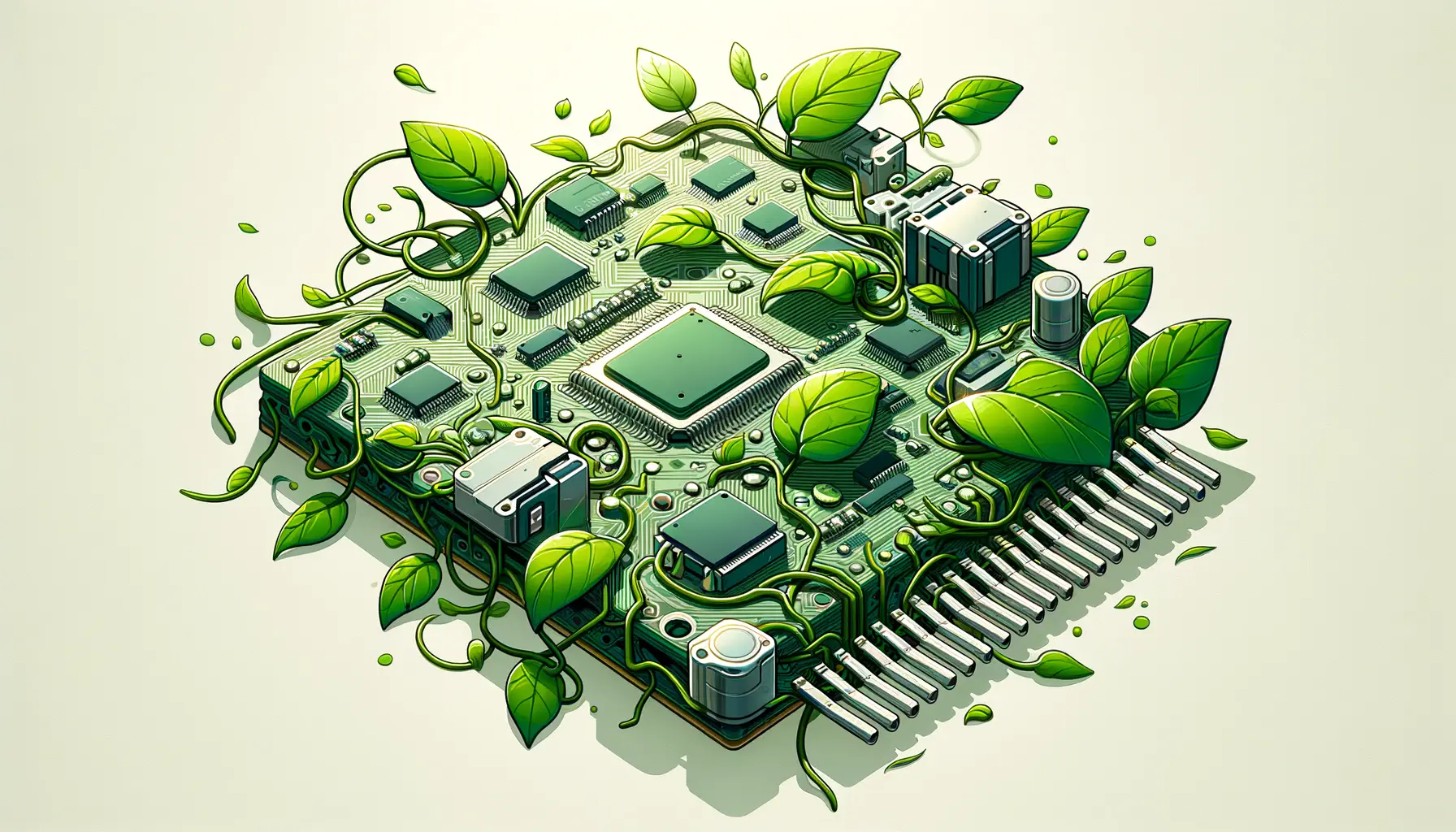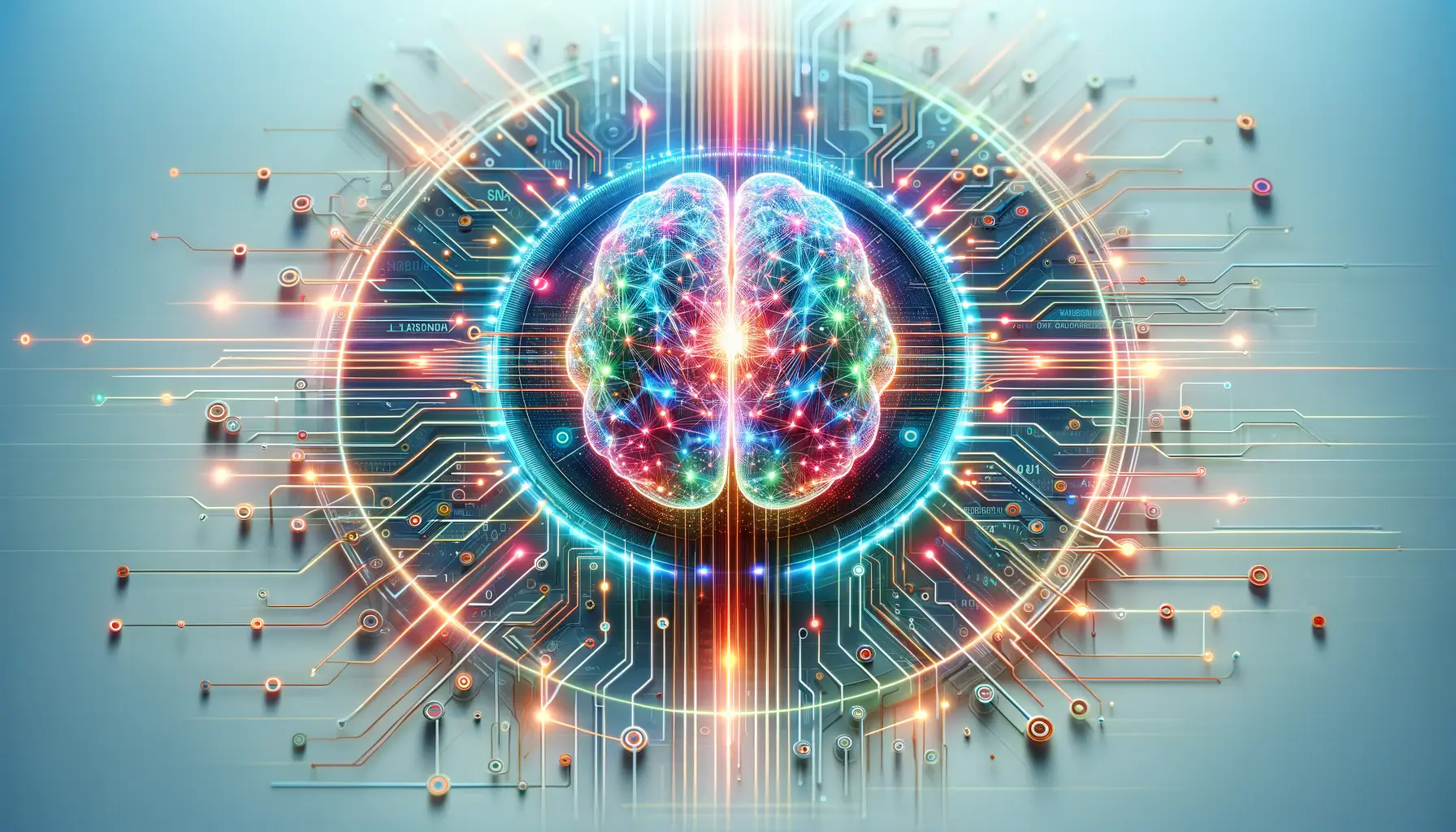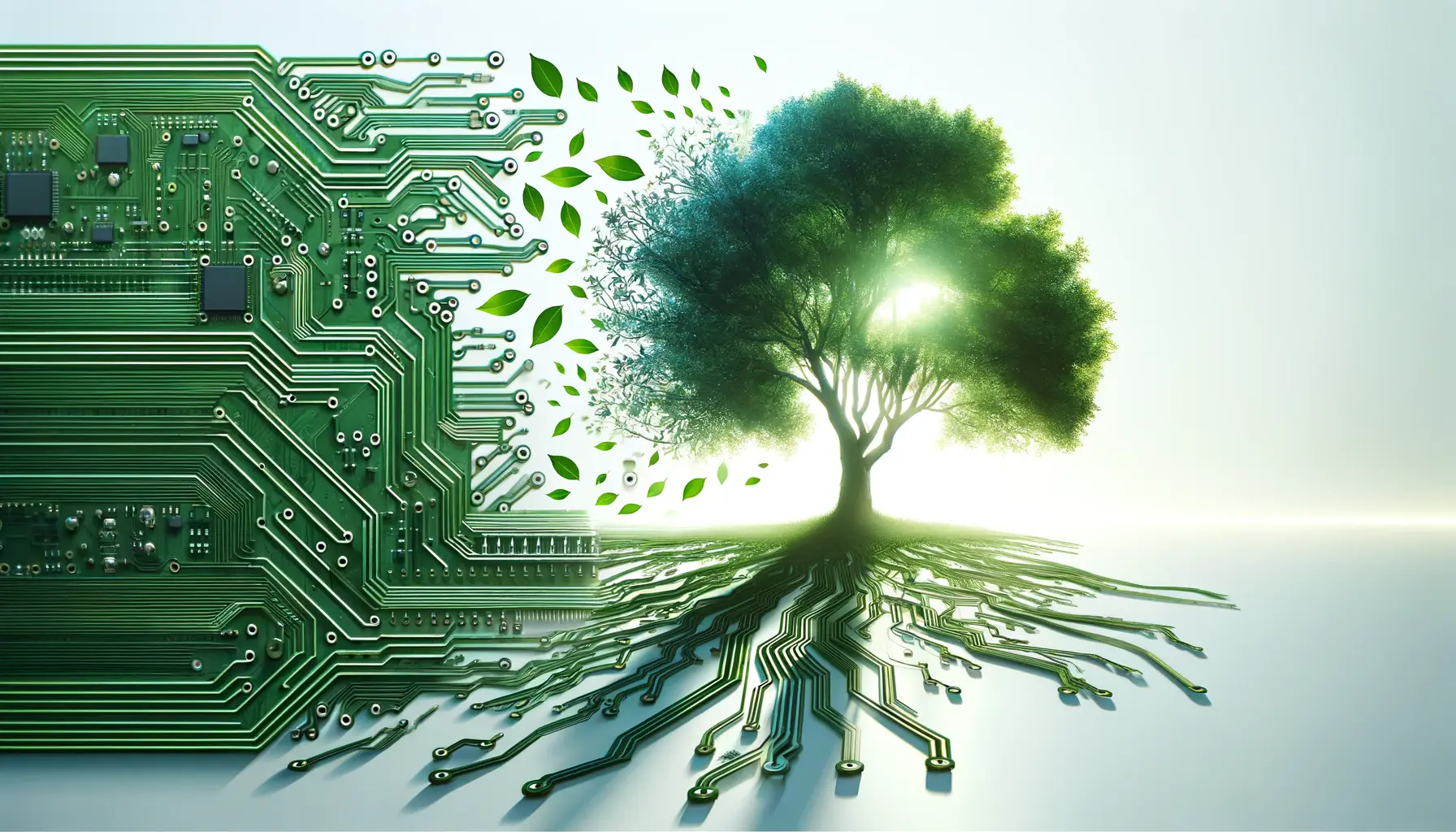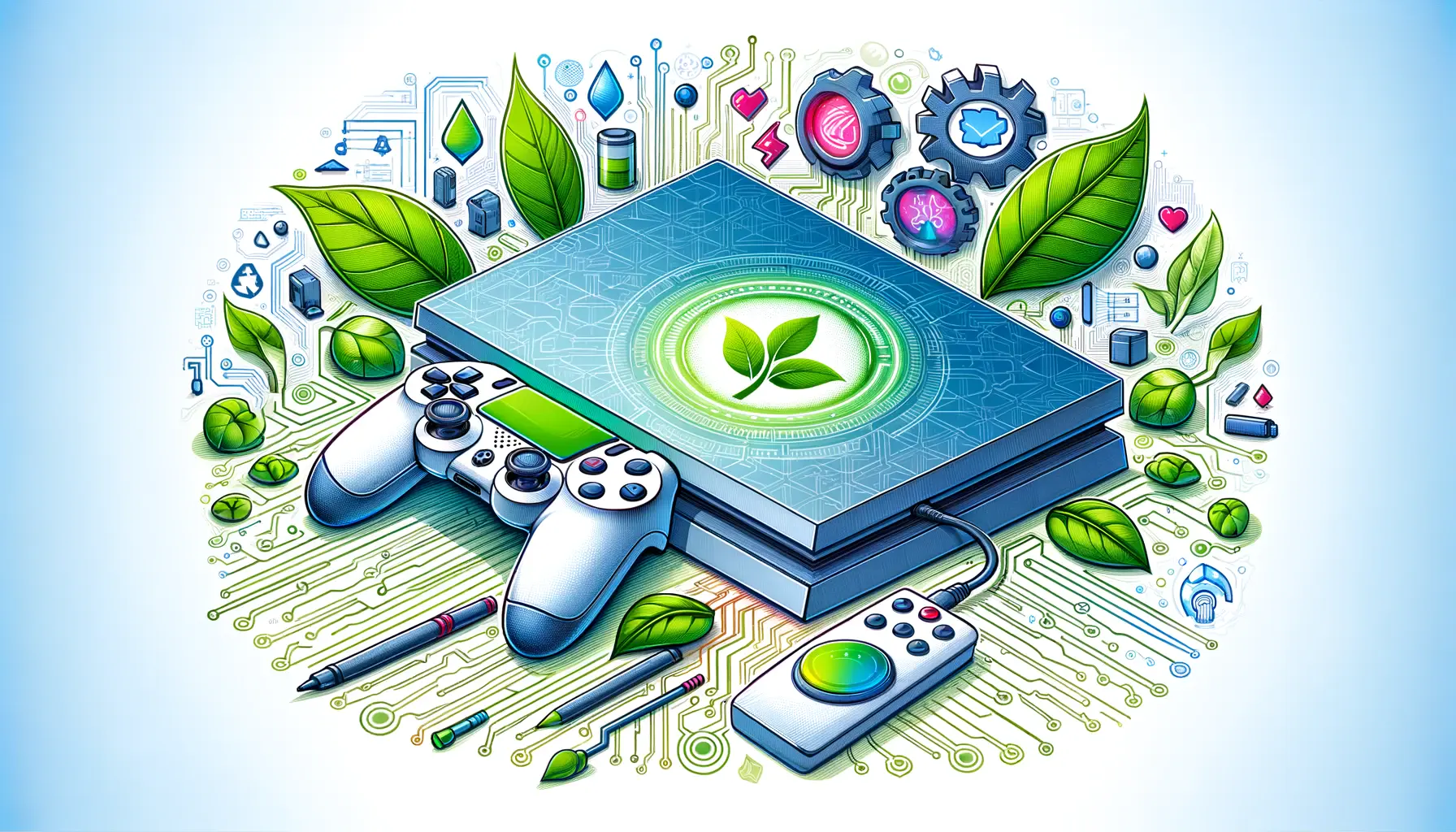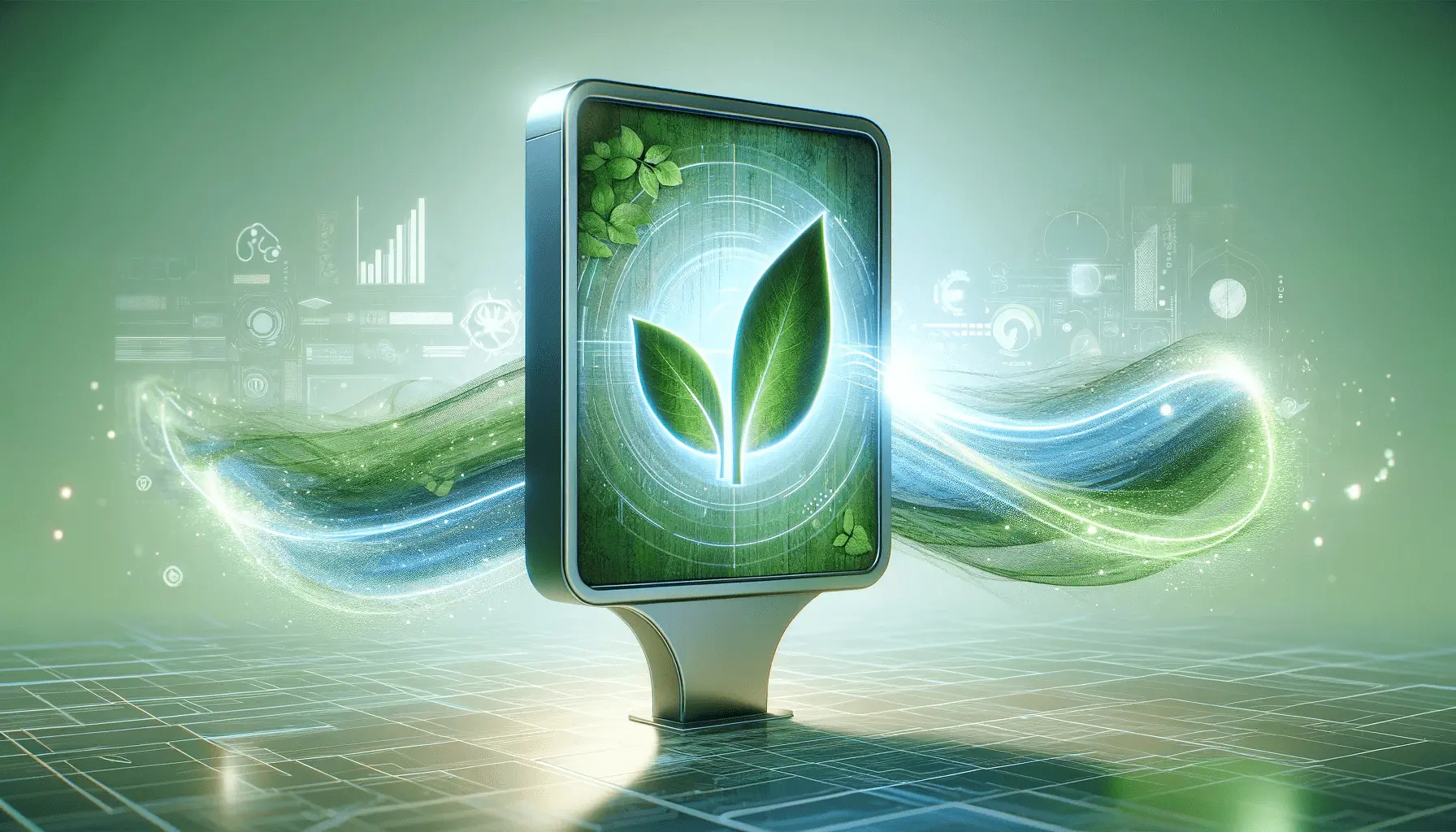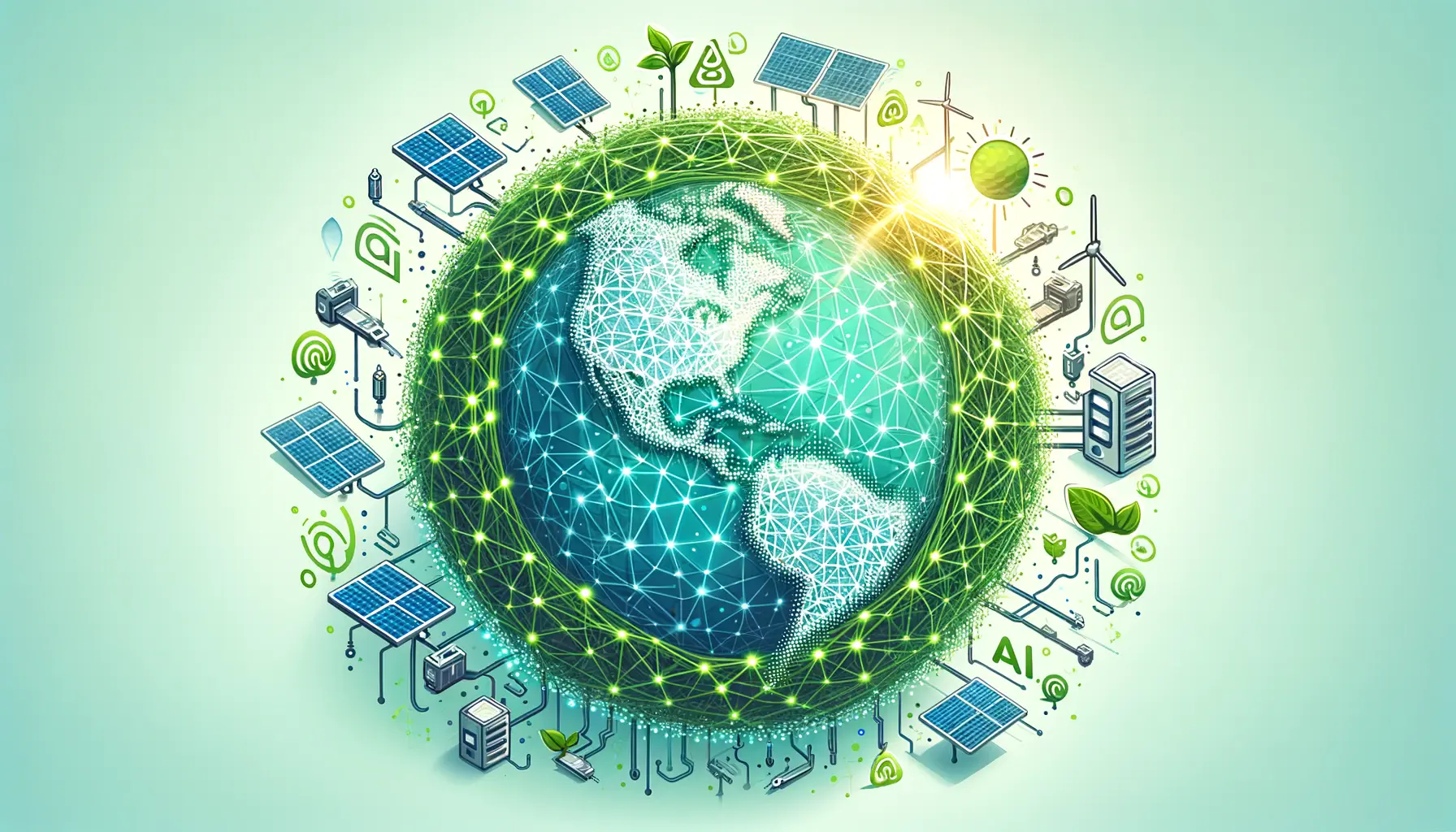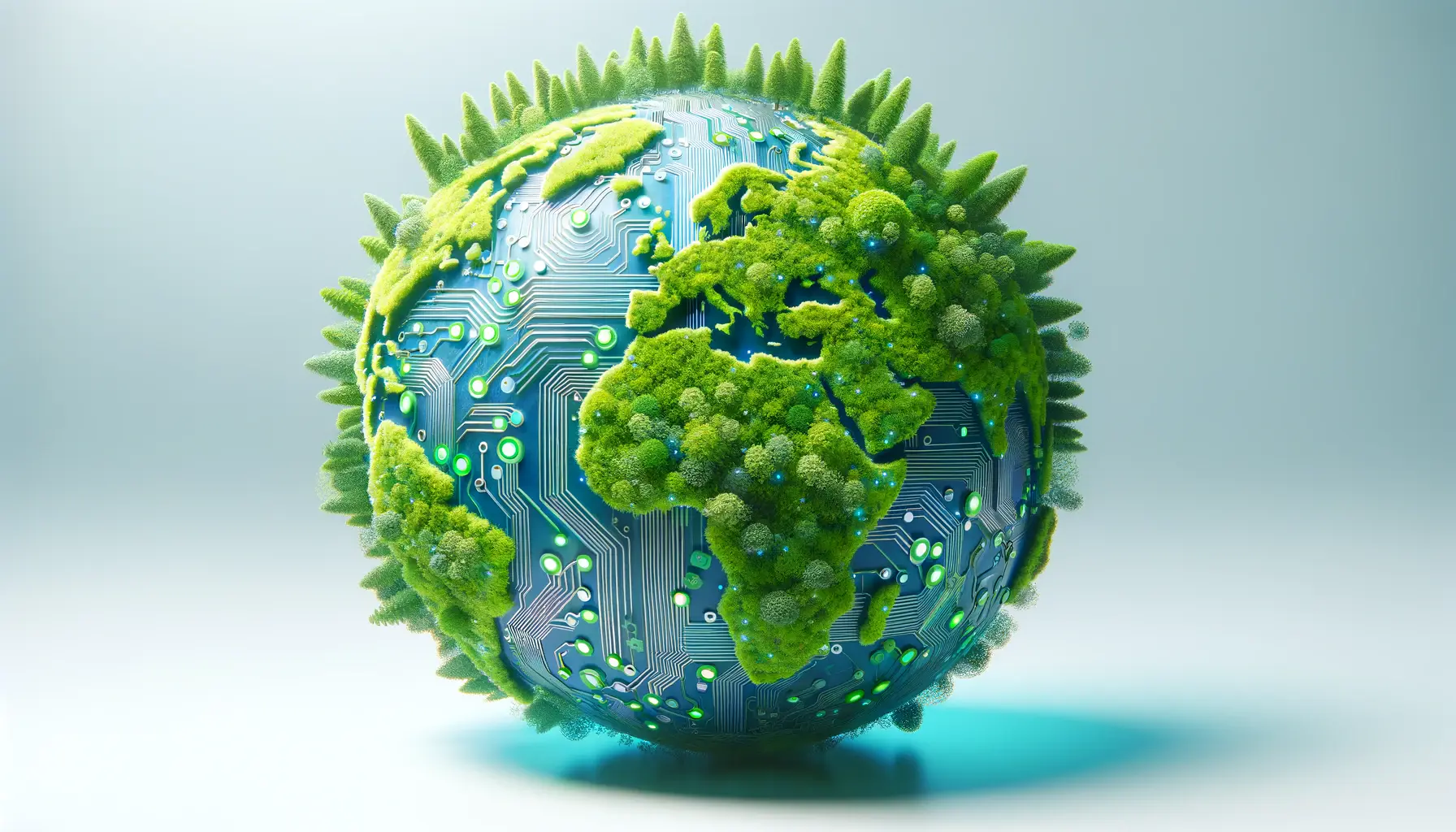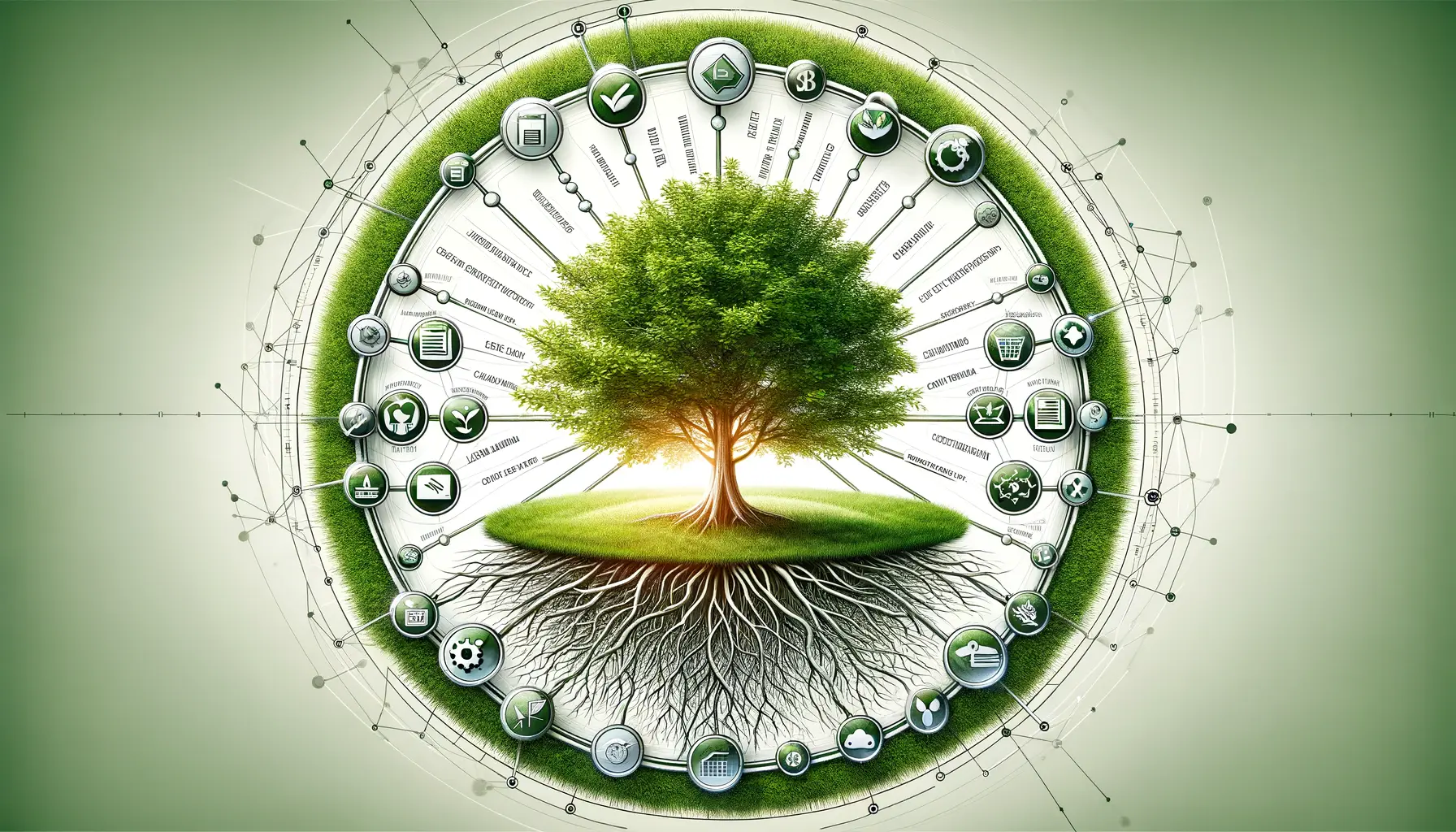The intersection of artificial intelligence (AI) and sustainability has become a focal point for innovation, with Claude AI emerging as a pivotal player in this transformative era.
As technology continues to evolve at an unprecedented pace, the quest for sustainable solutions has never been more critical.
Claude AI, developed by a team of experts passionate about leveraging AI for the greater good, stands at the forefront of this movement.
This article delves into how Claude AI is not just contributing to the tech industry but is also setting a new standard for sustainability within the realm.
At its core, Claude AI embodies the convergence of advanced machine learning algorithms and eco-conscious practices, aiming to reduce the environmental footprint of technological advancements.
The platform’s unique approach to integrating sustainability into every aspect of its operations reflects a broader shift in the tech industry towards more responsible and sustainable development practices.
Through innovative solutions and strategic partnerships, Claude AI is paving the way for a future where technology and sustainability go hand in hand.
- Understanding Claude AI’s Role in Sustainable Technology
- Strategies for Implementing Sustainable AI Solutions
- Impact of Claude AI on Renewable Energy Sector
- Enhancing Environmental Conservation with Claude AI
- Revolutionizing Waste Management with AI
- Building Sustainable Cities with Claude AI
- Future Directions for Claude AI in Sustainability
- Charting the Path Forward: Claude AI’s Role in Shaping a Sustainable Future
- Claude AI and Sustainability FAQs
Understanding Claude AI’s Role in Sustainable Technology
The Genesis of Claude AI in Sustainability
The inception of Claude AI was marked by a clear vision: to harness the power of artificial intelligence in fostering environmental sustainability.
This vision was rooted in the understanding that AI can play a significant role in addressing some of the most pressing environmental challenges of our time.
From optimizing energy consumption in data centers to enhancing the efficiency of renewable energy systems, Claude AI has embarked on a journey to make technology a force for environmental good.
By focusing on the development of AI-driven solutions that can learn and adapt to optimize sustainability outcomes, Claude AI is contributing to a reduction in carbon emissions and resource wastage.
The platform’s algorithms are designed to identify patterns and insights that humans might overlook, enabling more informed decision-making when it comes to environmental conservation.
Driving Efficiency and Reducing Waste
One of the key areas where Claude AI excels is in its ability to drive operational efficiency while minimizing waste.
Through the application of machine learning and data analytics, Claude AI helps businesses and organizations streamline their processes, thereby reducing their environmental impact.
This is particularly relevant in industries such as manufacturing and logistics, where optimizing routes and production schedules can lead to significant reductions in energy consumption and greenhouse gas emissions.
In addition to optimizing existing processes, Claude AI also focuses on the development of new, more sustainable practices.
By analyzing vast amounts of data, Claude AI can identify opportunities for innovation that align with sustainability goals, such as the development of new materials that are both durable and recyclable.
Claude AI’s commitment to sustainability extends beyond its technological solutions, embodying a holistic approach that includes advocating for policy changes and raising awareness about the importance of sustainability in tech.
As we delve deeper into the capabilities and achievements of Claude AI in the realm of sustainable technology, it becomes clear that this innovative platform is not just a tool for environmental conservation but also a catalyst for change in the tech industry.
The following sections will explore the various dimensions of Claude AI’s impact on sustainability, highlighting case studies, and showcasing the tangible benefits of integrating AI with eco-friendly practices.
Strategies for Implementing Sustainable AI Solutions
Implementing sustainable AI solutions requires a multifaceted approach that encompasses not only the technological advancements but also the ethical considerations of AI development.
Claude AI’s strategy in promoting sustainability through technology is a testament to the potential of AI to contribute positively to environmental goals.
This section outlines the key strategies employed by Claude AI to ensure that its AI solutions are both effective and sustainable.
Incorporating Green Computing Practices
At the heart of Claude AI’s sustainability efforts is the adoption of green computing practices.
These practices are designed to minimize the environmental impact of AI operations, focusing on energy efficiency, renewable energy use, and the reduction of electronic waste.
Claude AI implements several measures to achieve these objectives:
- Energy-efficient data centers: Utilizing state-of-the-art cooling technologies and energy management systems to reduce power consumption.
- Renewable energy sources: Powering operations with renewable energy sources, such as solar and wind, to decrease carbon footprint.
- Hardware optimization: Employing hardware that is specifically designed for high efficiency in AI computations, thereby reducing energy usage.
Developing AI for Environmental Monitoring and Conservation
Claude AI leverages its capabilities to develop AI solutions aimed at environmental monitoring and conservation.
These solutions enable more effective tracking of environmental changes and help in the conservation efforts by providing actionable insights.
Key applications include:
- Wildlife protection: AI-driven monitoring systems that detect and prevent illegal poaching activities.
- Forest conservation: Using satellite imagery and AI to monitor deforestation and forest health in real-time.
- Water conservation: AI tools for predicting water usage patterns and identifying potential savings in agricultural and urban settings.
Advancing Sustainable AI Research
Research and development are crucial components of Claude AI’s strategy to enhance the sustainability of AI technologies.
By investing in sustainable AI research, Claude AI aims to discover new ways to reduce the environmental impact of AI systems.
This involves:
- Algorithm efficiency: Developing algorithms that require less computational power and, consequently, less energy.
- Life cycle analysis: Conducting comprehensive life cycle analyses of AI systems to understand and mitigate their environmental impact over time.
- Collaborative initiatives: Participating in industry-wide efforts to set standards for sustainable AI practices and share knowledge across sectors.
The integration of AI into sustainability efforts is not just about mitigating the environmental impact of technology itself but also about leveraging this powerful tool to solve complex environmental problems. Claude AI’s strategies showcase the potential of AI to be a positive force for the planet, driving innovation that aligns with the principles of sustainability.
Through these strategic initiatives, Claude AI not only demonstrates its commitment to sustainability but also sets a benchmark for how AI can be developed and used responsibly.
The next sections will delve into specific case studies and the impact of these strategies on various sectors, illustrating the real-world benefits of sustainable AI solutions.
Impact of Claude AI on Renewable Energy Sector
The renewable energy sector stands as a critical component in the global shift towards a more sustainable and environmentally friendly energy landscape.
Claude AI’s impact on this sector illustrates the transformative potential of AI to not only optimize but also revolutionize the way we harness, distribute, and consume energy.
By integrating AI technologies, renewable energy systems can achieve unprecedented levels of efficiency and reliability, paving the way for a cleaner, more sustainable future.
One of the key challenges in the renewable energy sector is the variability and unpredictability of energy sources like wind and solar power.
Claude AI addresses this challenge by employing advanced predictive models and machine learning algorithms to forecast energy production and demand with high accuracy.
This capability enables energy providers to better manage their resources, reduce waste, and ensure a steady supply of energy to meet consumer needs.
Optimizing Energy Production and Distribution
Claude AI’s algorithms play a pivotal role in optimizing energy production and distribution processes.
By analyzing vast datasets, including weather patterns, historical energy usage, and real-time data from energy grids, Claude AI can predict peak demand times and adjust energy distribution accordingly.
This not only enhances the efficiency of the energy grid but also minimizes the reliance on non-renewable energy sources during peak times.
- Smart grid management: Implementing AI-driven solutions for smart grid management enhances the flexibility and resilience of the energy system, facilitating the integration of renewable energy sources.
- Energy storage optimization: Claude AI improves the efficiency of energy storage systems, ensuring that excess energy produced during peak production times is stored and utilized effectively, reducing energy loss.
Facilitating Sustainable Energy Consumption
Beyond production and distribution, Claude AI also contributes to promoting sustainable energy consumption practices.
Through the development of smart home and building management systems, Claude AI enables consumers to monitor and control their energy usage more effectively.
These systems provide users with insights into their energy consumption patterns, suggesting adjustments to reduce energy waste and lower carbon footprints.
- Personalized energy-saving recommendations: Leveraging AI to analyze individual consumption patterns and offer personalized recommendations for energy savings.
- Automated energy efficiency: AI-powered devices and systems can automatically adjust settings for optimal energy use, such as regulating heating and cooling systems based on occupancy and weather conditions.
The integration of Claude AI into the renewable energy sector not only enhances the operational efficiency of renewable energy sources but also empowers individuals and communities to take an active role in the transition to a more sustainable energy future.
The advancements brought about by Claude AI in the renewable energy sector exemplify the profound impact that AI can have on achieving sustainability goals.
By leveraging AI to address the challenges of renewable energy production, distribution, and consumption, Claude AI is helping to accelerate the transition towards a more sustainable and resilient energy system.
Enhancing Environmental Conservation with Claude AI
Environmental conservation efforts are increasingly benefiting from the integration of artificial intelligence, with Claude AI emerging as a key player in this domain.
By leveraging AI’s data processing and predictive analytics capabilities, Claude AI is enhancing the effectiveness of conservation strategies, enabling a more informed approach to protecting natural ecosystems and biodiversity.
This section explores how Claude AI contributes to environmental conservation through innovative applications and solutions.
One of the most significant contributions of Claude AI to environmental conservation is its ability to process and analyze large datasets from various sources, including satellite imagery, sensor data, and historical records.
This capability allows for the monitoring of environmental changes in real-time, providing conservationists with valuable insights into ecosystem health, wildlife populations, and the impacts of human activities on natural habitats.
Wildlife Monitoring and Protection
Claude AI’s technology is instrumental in wildlife monitoring and protection efforts.
By analyzing images and videos captured by drones and camera traps, AI algorithms can identify species, count population numbers, and detect poachers or illegal activities in protected areas.
This real-time monitoring capability significantly enhances the ability of conservationists to protect endangered species and prevent illegal hunting and habitat destruction.
- Species identification: AI models trained to recognize hundreds of species, facilitating biodiversity assessments and conservation planning.
- Anti-poaching operations: Deploying AI-driven surveillance systems to detect and deter poachers in real-time, protecting wildlife from illegal hunting.
Forest Conservation and Management
Forests play a crucial role in maintaining ecological balance, and Claude AI is at the forefront of using AI to conserve these vital ecosystems.
Through the analysis of satellite imagery, Claude AI helps in mapping deforestation, forest degradation, and reforestation areas, offering actionable insights for forest conservation and management.
AI algorithms can also predict areas at risk of deforestation, enabling preemptive conservation actions.
- Deforestation tracking: Automated analysis of satellite images to monitor changes in forest cover, identifying areas affected by illegal logging or land conversion.
- Reforestation efforts: AI tools assist in planning and monitoring reforestation projects, ensuring their success and sustainability.
Climate Change Mitigation
Claude AI also contributes to climate change mitigation efforts by providing tools for carbon footprint analysis and reduction strategies.
By analyzing data from various sectors, including transportation, agriculture, and energy, Claude AI identifies patterns and opportunities for reducing greenhouse gas emissions.
Furthermore, AI-driven models can simulate the impacts of climate change on ecosystems, guiding adaptation and mitigation strategies.
- Emission reduction strategies: AI-powered analysis of energy usage and operational practices across industries to recommend carbon reduction measures.
- Climate impact simulations: Using AI to model the potential impacts of climate change on biodiversity and ecosystem services, informing conservation and adaptation efforts.
The application of Claude AI in environmental conservation exemplifies the potential of technology to support and enhance traditional conservation efforts. Through innovative AI solutions, Claude AI is helping to safeguard the planet’s natural resources and biodiversity for future generations.
The role of Claude AI in environmental conservation is a testament to the power of technology to make a positive impact on the world.
By harnessing the capabilities of AI, conservation efforts can be more targeted, efficient, and effective, leading to better outcomes for the planet’s ecosystems and the species that inhabit them.
Revolutionizing Waste Management with AI
The global challenge of waste management is becoming increasingly complex with the rise in consumption and the diversity of waste materials.
Traditional methods of waste management are often inefficient and environmentally harmful, leading to the need for innovative solutions.
Claude AI is stepping up to this challenge, employing artificial intelligence to revolutionize the way we handle waste, from collection to recycling processes.
This section delves into the transformative impact of Claude AI on waste management practices, highlighting its potential to contribute to a more sustainable and efficient system.
By leveraging AI technologies, Claude AI introduces a new paradigm in waste management that emphasizes reduction, reuse, and recycling.
AI algorithms are capable of sorting waste more accurately and efficiently than ever before, identifying recyclable materials, and reducing contamination in recycling streams.
This not only improves the efficiency of recycling processes but also enhances the quality of recycled materials, making recycling more viable and sustainable.
Smart Waste Sorting and Recycling
One of the standout applications of Claude AI in waste management is in smart waste sorting systems.
These systems use AI-powered cameras and sensors to identify and sort different types of waste at the point of collection.
By distinguishing between recyclables, organics, and non-recyclables, these smart systems significantly reduce the amount of waste sent to landfills and increase the efficiency of recycling operations.
- Automated sorting lines: AI technologies enable automated sorting lines in recycling facilities to separate materials with high precision, reducing the need for manual sorting and increasing recycling rates.
- Material recovery: Enhanced sorting capabilities lead to better recovery of valuable materials, such as plastics, metals, and paper, contributing to the circular economy.
Optimizing Waste Collection Routes
Beyond sorting and recycling, Claude AI also plays a crucial role in optimizing waste collection routes.
By analyzing data on waste generation patterns, bin fill levels, and traffic conditions, AI algorithms can determine the most efficient routes for waste collection vehicles.
This optimization reduces fuel consumption, lowers emissions, and ensures timely collection, addressing both environmental and operational efficiency goals.
- Dynamic routing: AI systems adjust waste collection routes in real-time based on data inputs, ensuring the most efficient path is always taken.
- Reduced environmental impact: Efficient routing decreases the carbon footprint of waste collection services, aligning with sustainability objectives.
Enhancing Public Engagement and Education
Another significant contribution of Claude AI to waste management is in the realm of public engagement and education.
AI-driven platforms can provide individuals and businesses with insights into their waste generation patterns, offering suggestions for waste reduction and better recycling practices.
By fostering a more informed and engaged public, Claude AI supports the shift towards more sustainable waste management behaviors.
- Waste reduction tips: Personalized recommendations for individuals and organizations to minimize waste generation and improve sorting practices.
- Recycling education: AI-powered apps and tools that educate users on how to recycle various materials correctly, increasing recycling rates and reducing contamination.
The innovative use of Claude AI in waste management showcases the potential of artificial intelligence to address some of the most pressing environmental challenges. By improving sorting, recycling, and collection processes, Claude AI is leading the way towards a more sustainable and efficient waste management system.
The advancements in AI-driven waste management not only promise to enhance the sustainability of these processes but also to inspire further innovation in the sector.
As Claude AI continues to push the boundaries of what is possible, the future of waste management looks increasingly green and efficient.
Building Sustainable Cities with Claude AI
The concept of sustainable cities, which aims to minimize environmental impact while enhancing the quality of life for their inhabitants, is gaining momentum worldwide.
Claude AI is playing a crucial role in this transformation, leveraging artificial intelligence to create smarter, more efficient, and greener urban environments.
This section explores how Claude AI contributes to the development of sustainable cities through innovative solutions that address key urban challenges such as traffic congestion, energy consumption, and pollution.
By integrating AI into urban planning and management, Claude AI offers a pathway to cities that not only thrive economically but also prioritize environmental sustainability and the well-being of their residents.
From optimizing public transportation networks to reducing energy usage in buildings, Claude AI’s applications are diverse and impactful, marking a significant step forward in the journey towards sustainability.
Optimizing Public Transportation
A vital aspect of sustainable cities is efficient and eco-friendly public transportation.
Claude AI enhances public transportation systems by analyzing travel data, predicting demand, and optimizing routes and schedules.
This not only improves the user experience by reducing wait times and overcrowding but also decreases the carbon footprint associated with urban transport.
- Demand-responsive transit: AI algorithms adjust public transportation services in real-time based on user demand, ensuring resources are utilized efficiently.
- Eco-routing for buses: Identifying the most fuel-efficient routes for buses, contributing to lower emissions and operational costs.
Energy-Efficient Buildings
Buildings are significant contributors to urban energy consumption and carbon emissions.
Claude AI addresses this challenge by implementing AI-driven systems for energy management in buildings.
These systems monitor and control energy use in real-time, optimizing heating, ventilation, air conditioning (HVAC), and lighting systems to reduce energy waste and enhance comfort.
- Smart HVAC systems: AI-powered HVAC systems adjust settings based on occupancy and weather conditions, significantly reducing energy consumption without compromising comfort.
- Adaptive lighting: Intelligent lighting systems that adjust brightness based on natural light availability and occupancy, further cutting down energy use.
Reducing Urban Pollution
Urban pollution is a pressing issue that affects the health of city dwellers and the environment.
Claude AI tackles this problem by monitoring pollution levels in real-time and identifying sources of pollution.
AI models can predict pollution hotspots and suggest interventions to reduce emissions, such as traffic flow adjustments and industrial activity regulations.
- Air quality monitoring: Deploying AI to analyze data from air quality sensors across the city, providing accurate and timely information on pollution levels.
- Pollution reduction strategies: AI recommendations for reducing emissions, including traffic management and green infrastructure development.
The role of Claude AI in building sustainable cities is a testament to the transformative power of artificial intelligence in addressing complex urban challenges. By optimizing transportation, enhancing energy efficiency, and reducing pollution, Claude AI is helping to shape the future of urban living, making cities more livable, sustainable, and resilient.
The initiatives and technologies driven by Claude AI in the context of sustainable cities highlight the potential of AI to catalyze significant environmental and social benefits.
As cities continue to grow and face new challenges, the integration of AI solutions like those offered by Claude AI will be crucial in navigating towards a sustainable future.
Future Directions for Claude AI in Sustainability
The journey of Claude AI in the realm of sustainability is an ongoing one, with its impact only set to expand in the coming years.
As we look towards the future, it’s clear that the potential applications of artificial intelligence in promoting environmental sustainability are vast and varied.
This section explores the emerging trends and future directions for Claude AI, highlighting how it could further revolutionize sustainability efforts across different sectors.
As technology evolves, so too do the opportunities for Claude AI to contribute to a more sustainable world.
From advancing smart agriculture to enhancing water resource management, the next frontier for Claude AI involves tackling some of the most pressing environmental challenges with innovative AI solutions.
The future of Claude AI in sustainability is not just about enhancing existing applications but also about exploring new territories where AI can make a significant difference.
Smart Agriculture and Food Systems
One of the promising areas for Claude AI’s future application is in smart agriculture and sustainable food systems.
By leveraging AI for precision farming, Claude AI can help optimize the use of resources such as water, fertilizers, and energy, leading to more sustainable agricultural practices.
AI-driven solutions can also play a crucial role in monitoring crop health and predicting yields, reducing waste and improving food security.
- Precision irrigation: AI models that analyze soil moisture, weather data, and crop needs to optimize irrigation schedules, conserving water while maximizing crop yields.
- Crop disease prediction: Using AI to detect early signs of disease and pests, enabling timely intervention and reducing the need for chemical pesticides.
Water Resource Management
Water scarcity is a growing concern globally, and Claude AI’s future endeavors could include more focused efforts on water resource management.
AI technologies can enhance the efficiency of water distribution systems, detect leaks, and predict water demand, contributing to more sustainable water use.
Additionally, AI can assist in water quality monitoring, ensuring safe and clean water for all.
- Leak detection: Implementing AI algorithms to monitor water distribution networks in real-time, identifying leaks and inefficiencies to reduce water loss.
- Water quality analysis: AI-powered systems that analyze water samples for contaminants, providing rapid and accurate assessments of water quality.
Enhancing Climate Resilience
As climate change continues to pose significant risks to communities worldwide, Claude AI’s role in enhancing climate resilience becomes increasingly important.
AI can help predict and mitigate the impacts of climate-related disasters, such as floods, droughts, and hurricanes, through advanced modeling and simulation techniques.
By integrating AI into disaster response and planning, communities can be better prepared for and adapt to the changing climate.
- Disaster prediction and response: Utilizing AI to analyze climate data and predict natural disasters, improving emergency preparedness and response efforts.
- Climate adaptation planning: AI tools that assist in developing strategies to adapt to climate change, protecting ecosystems and human communities.
The future of Claude AI in sustainability is marked by the potential to address a wide range of environmental challenges through innovative and effective AI solutions. As Claude AI continues to evolve, its contributions to sustainability are expected to grow, offering new ways to protect our planet and ensure a sustainable future for generations to come.
The exploration of future directions for Claude AI underscores the dynamic nature of AI’s role in sustainability.
With each advancement, Claude AI is set to offer more sophisticated, efficient, and impactful solutions, driving progress towards a more sustainable and resilient world.
Charting the Path Forward: Claude AI’s Role in Shaping a Sustainable Future
The exploration of Claude AI’s contributions to sustainability in technology has unveiled a multifaceted landscape where innovation meets environmental stewardship.
As we stand at the crossroads of technological advancement and ecological preservation, the role of artificial intelligence, epitomized by Claude AI, emerges as both a beacon of hope and a testament to human ingenuity.
This conclusion aims to weave together the insights gleaned from our journey through the realms of renewable energy, waste management, environmental conservation, and the development of sustainable cities, highlighting the pivotal role Claude AI plays in orchestrating a sustainable future.
Reinforcing Commitment to Sustainability
At its core, Claude AI represents more than just a technological marvel; it embodies a profound commitment to sustainability.
Through its innovative applications in optimizing renewable energy sources, enhancing waste management systems, conserving natural ecosystems, and fostering the growth of sustainable urban environments, Claude AI has demonstrated that technology can, indeed, be harnessed to protect and preserve our planet.
The integration of AI into these critical areas not only amplifies the effectiveness of sustainability efforts but also opens new avenues for addressing the complex challenges of environmental conservation.
Envisioning a Greener Tomorrow
The future directions for Claude AI in sustainability paint a promising picture of what lies ahead.
With potential expansions into smart agriculture, water resource management, and climate resilience, Claude AI is poised to further revolutionize our approach to environmental sustainability.
These emerging trends underscore the versatility and adaptability of AI technologies in tackling a broad spectrum of ecological issues, from ensuring food security and managing scarce water resources to enhancing our resilience against climate change.
- The role of Claude AI in advancing precision agriculture and sustainable food systems highlights the potential for AI to significantly reduce resource waste and improve yield efficiency.
- In water resource management, Claude AI’s capabilities in leak detection and water quality analysis promise a future where water scarcity is effectively mitigated through intelligent conservation strategies.
- The emphasis on enhancing climate resilience through AI-driven disaster prediction and response mechanisms illustrates the critical role of technology in safeguarding communities against the impacts of climate change.
In conclusion, the journey of Claude AI in the realm of sustainability is a vivid illustration of how artificial intelligence can be a powerful ally in our quest for a sustainable future.
By continuously pushing the boundaries of what is possible, Claude AI not only enhances our ability to address current environmental challenges but also inspires hope for a greener, more resilient world.
As we move forward, the integration of Claude AI into our sustainability efforts will undoubtedly be a key driver in our collective endeavor to chart a sustainable path for generations to come.
Claude AI and Sustainability FAQs
Explore common questions about Claude AI’s role in promoting sustainability in technology.
Claude AI integrates green computing and AI-driven solutions to enhance environmental conservation and energy efficiency.
It optimizes renewable energy sources through predictive analytics, improving efficiency and integration into power grids.
Yes, by employing AI for smart sorting and recycling, Claude AI significantly enhances waste management systems.
Claude AI aids in monitoring endangered species and combating poaching through advanced image recognition technologies.
Yes, Claude AI supports sustainable city initiatives by optimizing public transport and energy use in buildings.
Through AI-driven water management systems, Claude AI enhances water conservation and distribution efficiency.
By optimizing energy consumption and supporting renewable energy, Claude AI plays a key role in reducing carbon footprints.
Claude AI is exploring new applications in smart agriculture, water management, and climate resilience to further sustainability efforts.
